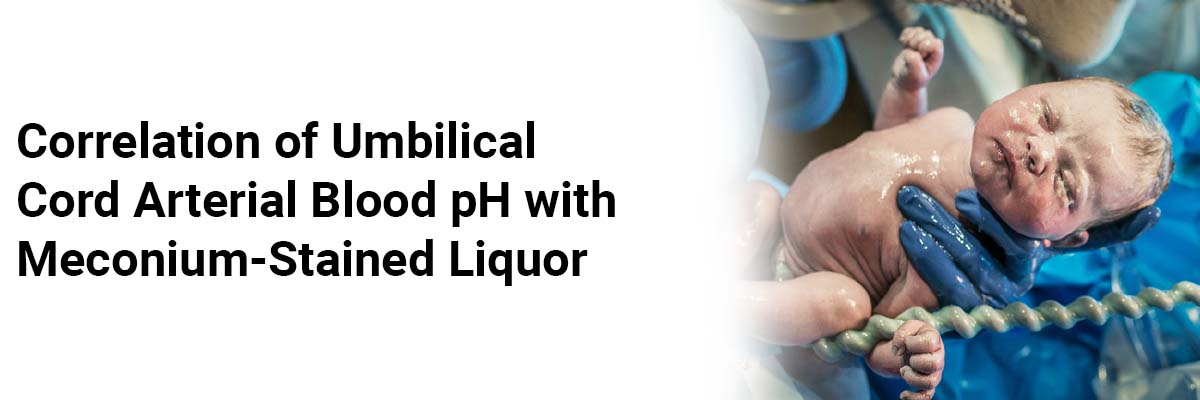
 IJCP Editorial Team
IJCP Editorial Team
Correlation of umbilical cord arterial blood pH with meconium-stained liquor
The presence of meconium in the intrauterine environment during childbirth can arise from factors such as fetal hypoxia or could simply indicate the natural maturation of the fetal gastrointestinal tract. Measuring umbilical cord blood pH is considered the most reliable criterion to accurately identify fetal hypoxia and make informed postnatal care decisions.
In a current study, the researchers aimed to establish a connection between umbilical cord arterial blood pH and the presence of meconium in the amniotic fluid and to assess its impact on neonatal outcomes. Additionally, the study sought to determine if the mode of delivery played a role in the occurrence of acidemia in neonates born to mothers with meconium-stained amniotic fluid.
To achieve these objectives, the researchers collected umbilical artery blood samples immediately after delivery in cases where pregnancies were complicated by the presence of meconium in the amniotic fluid. These blood samples were then subjected to arterial blood gas (ABG) analysis. Simultaneously, the study recorded neonatal outcome parameters and noted the mode of delivery using a predetermined data collection form.
The study observed-
- A statistically significant correlation between abnormal pH (acidosis) and thick meconium-stained liquor.
- Statistically significant Neonatal outcome parameters (like Apgar scores at 1 minute and 5 minutes, intravenous antibiotic administration, NICU admission, and oxygen supplementation) when correlated with the pH level.
This study shows that the degree of meconium thickness independently correlates with the composite adverse neonatal outcome. Hence, cases with meconium-stained liquor should be watched vigorously with timely interventions and proper neonatal resuscitation, especially those with thick meconium-stained liquor, to prevent adverse neonatal outcomes.
Kima V, Roy I, Saikia N, Correlation of umbilical cord arterial blood pH with meconium stained liquor. Indian J ObstetGynecol Res. 2023;10(1):27-31

IJCP Editorial Team
Comprising seasoned professionals and experts from the medical field, the IJCP editorial team is dedicated to delivering timely and accurate content and thriving to provide attention-grabbing information for the readers. What sets them apart are their diverse expertise, spanning academia, research, and clinical practice, and their dedication to upholding the highest standards of quality and integrity. With a wealth of experience and a commitment to excellence, the IJCP editorial team strives to provide valuable perspectives, the latest trends, and in-depth analyses across various medical domains, all in a way that keeps you interested and engaged.






















Please login to comment on this article